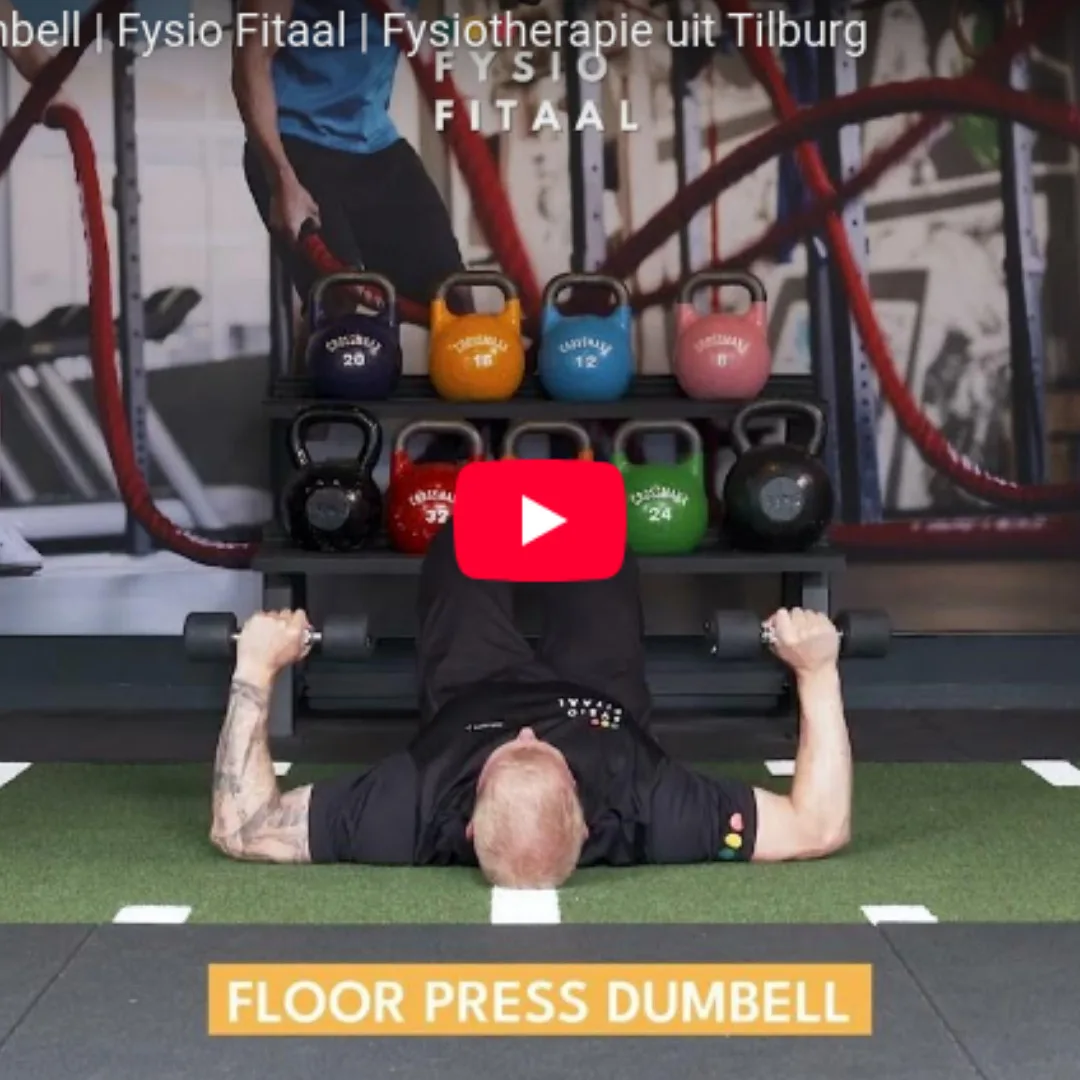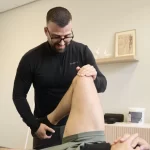Floor Press
Do you want to effectively train your chest, shoulder and triceps muscles without putting extra pressure on your shoulders? The Floor Press is an ideal exercise to build strength and stability. At Fysiofitaal, we explain how to perform this exercise correctly, which muscles you are targeting and how to prevent injury. Learn how to optimally integrate the Floor Press into your training schedule!

What is a floor press?
A floor press is an exercise you can use as an upper body exercise. It is a way to still reap the benefits of bench pressing but not the drawbacks. Everyone likes to bench press. There is something about being able to bench press a lot and it is often seen as a sign of strength. But unfortunately, we see that when this exercise is done too often, problems can arise in the shoulder. Muscles in the shoulder, especially the rotator cuff, can become overloaded and can even lead to tendonitis. In times of nasty injuries, it is a good way to still keep training but it is also one of our most sought-after rehabilitation exercise for training a shoulder injury!
Advantages
The floor press allows you to gain strength and muscle mass without the adverse effects that frequent bench presses bring.
When you stretch your legs, it becomes a pure upper-body strength test. You cannot smuggle with your legs.
You can train purely for strength with a floor press but also for muscle mass.
You are likely to get stronger with bench pressing. You often get into the hardest corner of bench pressing where the load is heaviest.
Pure upper body!
Stretching your legs prevents you from hollowing your back and pushing from your legs. This isn't necessarily right or wrong but by doing this you are purely and simply using your upper body. If you have little experience with bench pressing, this is an ideal way to get used to this movement pattern. The movement is more controllable and you know better what to do. Let's face it you are not going to bounce your elbows on the floor like crazy. You are exercising much more consciously than you normally do when bench pressing. The floor provides a controlled pace. All prerequisites for a more efficient movement pattern.
More frequency in press exercises
It allows you to train chest-shoulder-triceps more often. With a floor press, you train mainly triceps and a lot less chest and shoulders than with a normal bench press. By the way, it's also not the case that bench presses super directly train your chest or shoulders. For muscle growth, there are other exercises that do more justice to the function of the chest. More on this another time!
When you want to get stronger, you need to do that exercise more often. Besides strength, it is also important that your muscles know what to do. So you need to control them as efficiently as possible. Compare it to playing the piano. The more often you do it the better the coordination, the less effort it takes.
Getting stronger in the hardest corner of bench pressing
Many people, when they can control the weight down well, often still get the barbell a few cm off the chest. After that, it becomes really difficult. With the floor press, you train precisely that weak position. After a period of regular floor presses, your bench press will probably start to feel easier.
Want to know more? Suffering from a shoulder injury that just won't go away? See what we can do for you at www.fysiofitaal.nl or contact us directly!

